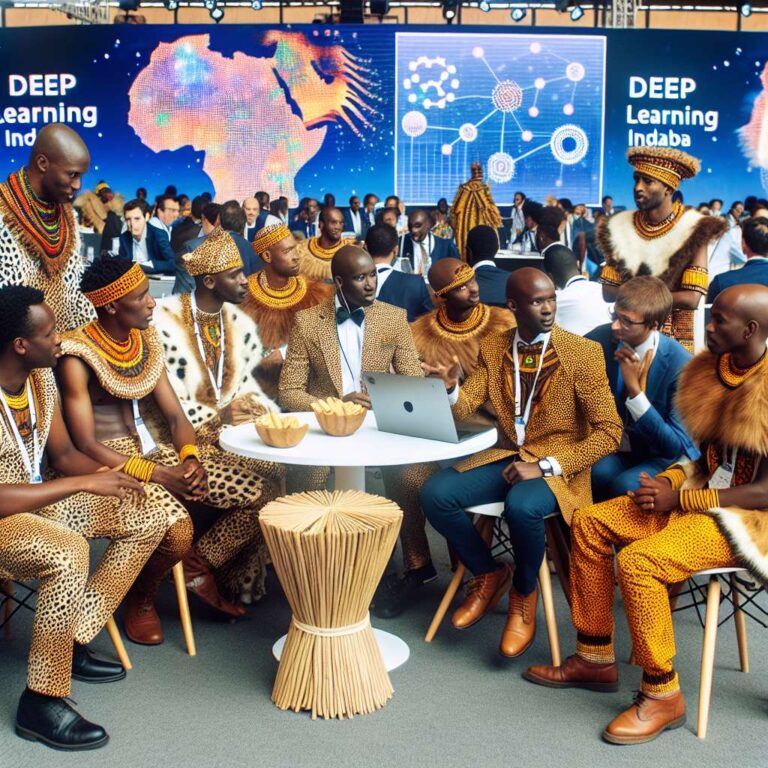It is late August in Kigali, Rwanda, and a hall fills for one of Africa’s biggest gatherings in Artificial Intelligence and machine learning. White curtains frame a giant screen looping generative videos as a classic East African song by Tanzanian singer Saida Karoli booms. Guests snack on arrowroot crisps and sugary mocktails amid a swirl of leopard-skin costumes and handwoven Ethiopian garments. Computer scientist Nyalleng Moorosi calls the parties the best part of the Deep Learning Indaba, the annual Zulu-named “gathering” where African researchers and builders present their work.
Moorosi, a senior researcher at the Distributed Artificial Intelligence Research Institute, threads through the crowd in her signature “Mama Africa” headwrap. When Nigerian music erupts, attendees rush the stage waving flags from across the continent. A founding member of the Indaba, she has watched it grow from a 2017 Johannesburg meeting of 300 into a prestigious pan-African movement with local chapters in 50 countries. This year, nearly 3,000 people applied and about 1,300 were accepted, with a noticeable influx from Chad, Cameroon, the Democratic Republic of Congo, South Sudan, and Sudan in addition to English-speaking countries.
For many participants, the main prize is a pathway to industry roles or PhD programs. Recruiters and partners on site include Microsoft Research’s Artificial Intelligence for Good Lab, Google, the Mastercard Foundation, and the Mila-Quebec Artificial Intelligence Institute. Moorosi hopes more homegrown ventures will expand opportunities within Africa rather than relying solely on foreign institutions. The event’s energy is as much about community as it is about careers, reflecting a determination to build and retain talent on the continent.
A panel on Artificial Intelligence policy underscored that ambition. Experts urged developers of national strategies to broaden community engagement, while audience questions pressed on how young Africans can access high-level policy discussions and whether the continent’s strategy is being shaped by outsiders. In follow-up conversations, Moorosi argued for embedding African priorities such as African Union backed labor protections, mineral rights, and safeguards against exploitation. Her horizon is clear: African industries adopting African-built Artificial Intelligence products and showing that work to the world.

